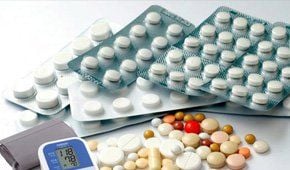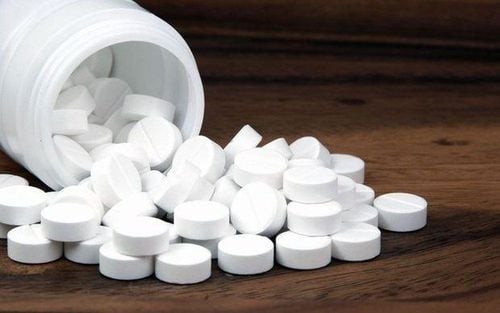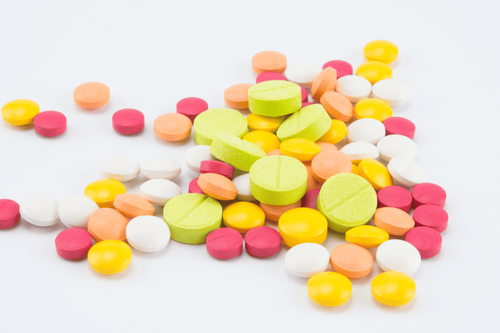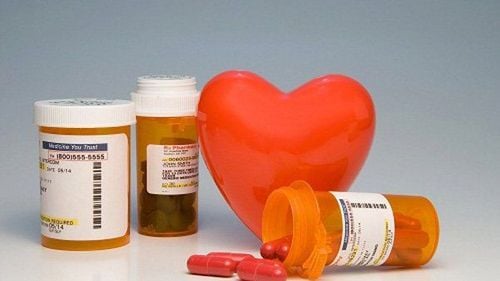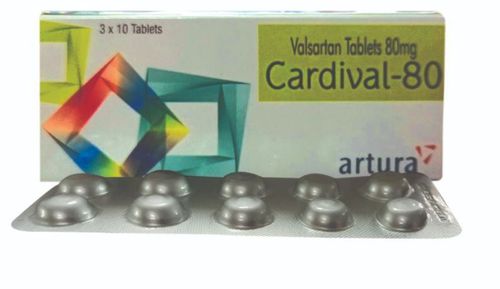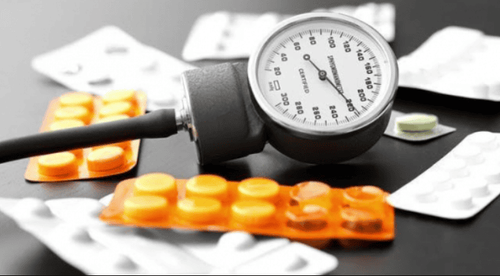This is an automatically translated article.
Posted by Pharmacist Cao Thanh Tu - Faculty of Pharmacy - Vinmec Times City International General Hospital
Hypertension is one of the most common cardiovascular diseases today. Treatment of hypertension helps prevent long-term complications of the disease such as stroke, myocardial infarction, kidney failure... However, besides beneficial effects on blood pressure, antihypertensive drugs also may cause certain side effects.
Equipping the necessary knowledge to help early recognition of possible side effects and taking measures to limit these effects will contribute to improving the effectiveness and safety of drug use.
1. Side effects of antihypertensive drugs
Currently, 5 classes of drugs are commonly used in the treatment of hypertension: ACE inhibitors, angiotensin receptor blockers, beta blockers, calcium channel blockers and diuretics. The following are some of the side effects of these classes of drugs:ACE inhibitors
Drugs in this class ending in – pril such as captopril, enalapril, lisinopril, perindopril...
ACE inhibitors Can cause a persistent dry cough, which cannot be treated with conventional cough medicines that can only be cured if the medicine is stopped. Less common side effects include dry mouth, nausea, rash, muscle pain, and increased blood potassium levels. A rare but very dangerous side effect of these drugs is angioedema. After a few minutes to a few hours of taking the drug, the patient may notice swelling of the lips, tongue, and throat, leading to difficulty breathing. These are emergency symptoms and require discontinuation of the drug.

Tác dụng phụ của thuốc ức chế men chuyển gây khó thở cho người bệnh
Angiotensin receptor blockers
Drugs in this class that end in -sartan such as losartan, irbesartan, valsartan, telmisartan.
These drugs have the same side effects as ACE inhibitors, but they usually cause less cough and less angioedema.
Beta-blockers
Drugs in this class ending in -lol such as atenolol, bisoprolol, nebivolol, carvedilol, metoprolol...
Beta-blockers are generally not suitable for people with asthma or chronic obstructive pulmonary disease as well as people with diseases related to the blood vessels outside the heart because it can make the symptoms of these diseases worse. In addition, the drug also masked the signs of hypoglycemia in diabetic patients requiring insulin therapy. The drug can also cause fatigue, sleep disturbance, slow heart rate, rash, cold hands and feet by reducing blood flow to the extremities.
Trắc nghiệm: Huyết áp của bạn có đang thực sự tốt?
Huyết áp cao hay thấp đều ảnh hưởng đến tình trạng sức khỏe con người. Để biết tình trạng huyết áp của bạn có thực sự tốt không, hãy làm bài trắc nghiệm sau đây để đánh giá.Calcium channel blockers
Calcium channel blockers such as amlodipine, nifedipine, nicardipine, felodipine, diltiazem, verapamil.....can cause headache, flushing, nausea, leg edema, gum overgrowth, confusion arrhythmia, constipation.
Diuretics
Diuretics such as hydrochlorothiazide, indapamide, chlorthalidone work to reduce the amount of fluid in the body (by increasing the excretion of water and salt through the urine) thereby lowering blood pressure. Therefore, the drug can increase the frequency of urination. Due to the reduction of potassium, sodium in the blood and the amount of water in the body, patients may have symptoms of fatigue, muscle weakness, cramps, and heart rhythm disturbances when using the drug. Other side effects include erectile dysfunction, causing acute gout attacks. However, in general, at the low doses used to treat hypertension, side effects are less likely to occur.

Nam giới có thể bị rối loạn cương dương sau khi dùng thuốc lợi tiểu
2. How to limit the side effects of antihypertensive drugs?
As mentioned above, all classes of antihypertensive drugs can cause certain side effects. In many cases, the body will adjust itself to gradually adapt to the effects of the drug, so the side effects will gradually decrease and disappear after a few weeks of use. Some other side effects can be minimized with simple measures.
With diuretics, to limit the effect of diuretic effects on sleep, it is recommended to take the drug in the morning. In the case of twice-daily dosing, the second dose should be taken before four o'clock in the afternoon.
ACE inhibitors or angiotensin receptor blockers can cause birth defects, so do not use these drugs when pregnant or planning to become pregnant. Patients of childbearing age who require treatment with these two classes of drugs should use an effective method of contraception. Because ACE inhibitors and angiotensin receptor blockers cause hyperkalemia, do not self-administer potassium supplements while using these drugs (unless directed by your doctor). Inform your doctor immediately if you notice a persistent dry cough while taking the medicine.
With medicines that cause a decrease in the amount of potassium in the blood, your doctor may order potassium supplements to make sure you have enough potassium needed for muscle and heart function. Absolutely do not arbitrarily supplement potassium because too high blood potassium can also cause serious consequences such as cardiac arrest leading to death.
For patients with diabetes, it is necessary to monitor blood glucose more often, especially when starting treatment with drug groups such as diuretics, beta-blockers
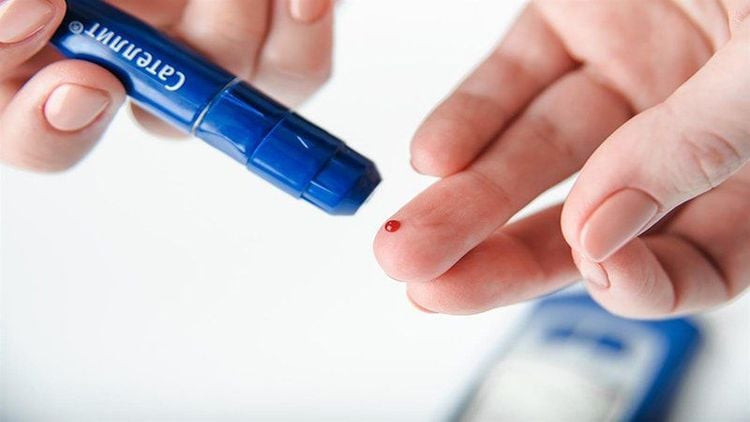
Người bệnh đái tháo đường cần thường xuyên kiểm tra đường huyết
Many drugs cause postural hypotension, making the patient feel dizzy, lightheaded, lose balance when getting up from bed or standing up while sitting in a chair. If you experience this effect, stand or sit up slowly, avoiding changing positions too quickly. Some medications are specially formulated, requiring them to be swallowed whole, not chewed or crushed. Chewing or crushing these tablets can lead to large amounts of the drug entering the bloodstream, causing excessive lowering of blood pressure. If the above instructions have been followed, but the symptoms of hypotension persist, the patient should talk to the doctor to adjust the dose or change to a more appropriate medication..
3. How to use medicine to treat high blood pressure safely?
To ensure the most effective use of antihypertensive drugs and minimize side effects, patients should note the following issues:
Only use antihypertensive drugs when prescribed. prescribed by a doctor. To choose which blood pressure medication has the least side effects and is most effective for a patient, doctors must consider many different factors such as age, gender, race, degree of hypertension, comorbidities. . Thus, a drug that may be appropriate and beneficial for one patient may not be beneficial for another. Use the correct dose prescribed. In case of forgetting the medicine, take it as soon as you remember. If it is almost time for your next dose, skip the missed dose and take your next dose as usual, do not take a double dose to make up for the missed dose. Regular check-ups according to the doctor's appointment. Treatment of hypertension is “lifetime”, during which the type and dose requirements may vary from stage to stage. Periodic re-examination helps to adjust the drug in accordance with the disease progression as well as early detection of complications of hypertension and side effects of the drug. Promptly notify medical staff when experiencing unusual effects during the use of antihypertensive drugs. See your doctor right away if you have any of these signs of an allergic reaction: hives, difficulty breathing; swelling of the face, lips, tongue or throat Inform your doctor and pharmacist of all medications you are taking (including prescription or over-the-counter medicines) to avoid adverse interactions.

Người bệnh cần được tư vấn về cách sử dụng thuốc an toàn và hiệu quả
To help patients identify the causes, complications and levels of hypertension, Vinmec International General Hospital now has a Basic Hypertension Checkup Package and an Advanced Hypertension Checkup Package.
The advantages of high blood pressure screening at Vinmec International General Hospital include: The medical team - doctors are leading experts, highly qualified, dedicated and devoted to the benefit of the patient. patients, bringing high efficiency in medical examination and treatment; Comprehensive and professional medical examination, consultation and treatment services; A system of modern equipment, supporting effective diagnosis and treatment; Modern, civilized, luxurious and sterile medical examination and treatment space.
To register for examination and treatment at Vinmec International General Hospital, you can contact Vinmec Health System nationwide, or register online HERE




